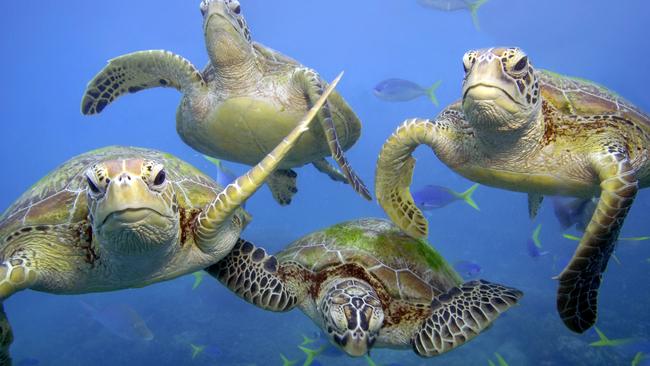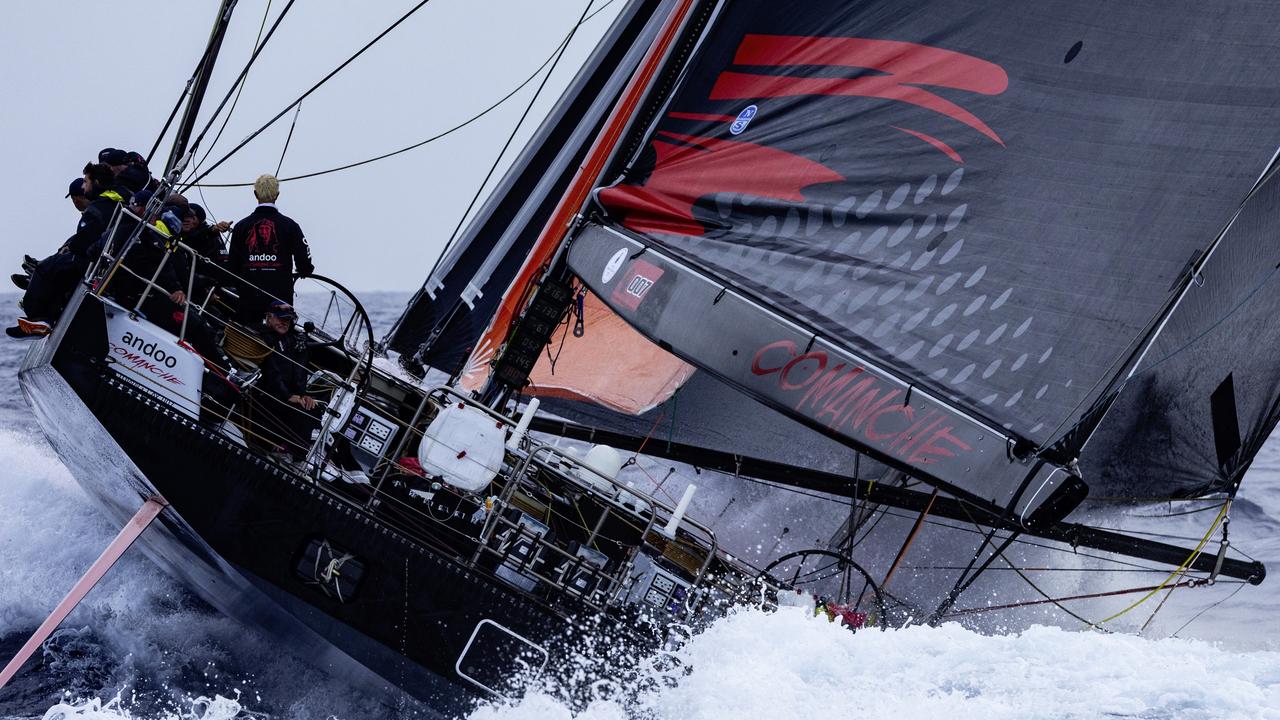Oceans at brink of collapse
Humans are mismanaging oceans to the edge of collapse with nearly half the world’s marine creatures lost in a generation.

Humans were mismanaging oceans to the brink of collapse with nearly half of the world’s marine mammals, birds, reptiles and fish lost in a single generation, a major new study has found.
An emergency edition of WWF Living Blue Planet report released today said some fish stocks relied on by humans had fallen by 75 per cent since 1970.
The report by WWF and Royal Zoological Society of London tracked 5829 populations of 1234 species, almost twice as large as previous studies.
Species essential to commercial and subsistence fishing were suffering the greatest declines with stocks of fish populations belonging to the family that includes tunas, mackerels and bonitos falling by 74 per cent.
The report found one in four species of sharks, rays and skates were threatened with extinction.
Tropical reefs had lost more than half their reef-building corals during the past 30 years.
Nearly 20 per cent of mangrove cover was lost between 1980 and 2005.
And 29 per cent of marine fisheries were overfished.
“In the space of just one generation, human activity has severely damaged the ocean by catching fish faster than they can reproduce while also destroying their nurseries,” WWF-Australia CEO Dermot O’Gorman said.
“Overfishing, destruction of marine habitats and climate change have dire consequences for the entire human population, with the poorest communities that rely on the sea getting hit fastest and hardest,” Mr O’Gorman said.
Release of the report coincides with a United Nations meeting later this month in New York which is expected to adopt a global plan to tackle extreme poverty, inequality, human rights and food insecurity, all while protecting the environment.
The Living Blue Planet Report highlights the need for countries with significant marine assets, such as Australia, to set aside important ocean habitats for protection.
“In 2012 Australia was on track to deliver the world’s largest network of marine sanctuaries, and to take a leadership role in the management of our ocean resources, but these sanctuaries are now under review,” Mr O’Gorman said.
WWF has also called for the waters around Antarctica to be protected in a network of large-scale, permanent marine protected areas.
“The Southern Ocean provides homes for whales, seals, albatrosses and penguins, while also supporting globally important fisheries and helping to regulate the global climate,” Mr O’Gorman said.
Twenty five nations with interests in the Southern Ocean will meet in Hobart next month at the Commission for the Conservation of Antarctic Marine Living Resources (CCAMLR), where they will consider a proposed network of marine protected areas in the Ross Sea and in the waters around East Antarctica.
“The proposed network of marine protected areas in this valuable ocean wilderness would be the largest of its kind in the world, and would build on the spirit of political cooperation in the Antarctic Treaty,” Mr O’Gorman said.



